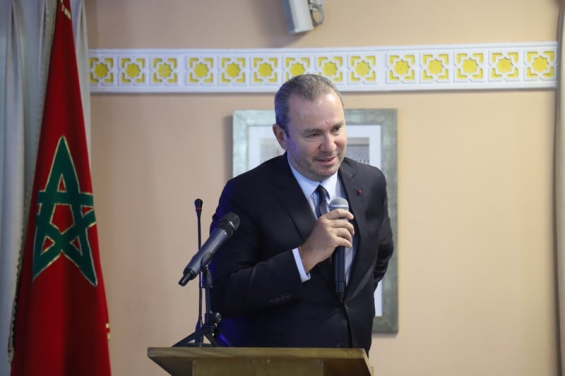In a conference-debate on Rabat-Paris relations held Friday, February 16, French Ambassador to Morocco Christophe Lecourtier emphasized the essential nature of the Sahara issue for Morocco.
Responding to a question on France's position, he stated: «It would be totally unrealistic, disrespectful, and foolish to consider building a strong relationship...without acknowledging this subject, which everyone in Paris knows and recognizes as essential for the Kingdom, yesterday, today, and tomorrow».
«How can we have these ambitions without considering the Kingdom's major concerns on the Sahara?», he added. «This question, as it has been since 2007, will be raised in the spirit of continued closeness and partnership in the years and decades to come», Lecourtier affirmed.
Cautious welcome in Rabat as France sends signals over Sahara
Morocco's stance towards recent French statements on the Sahara issue remains cautiously optimistic. While officially welcoming messages indicating potential shifts in France's approach, Rabat carefully guards its expectations.
Several developments have fueled this nuanced response. Last November, French Ambassador Christophe Lecourtier hinted at «new developments» in France's support for Morocco's position during a Radio 2M interview.
This was followed by newly appointed Foreign Minister Stéphane Séjourné reiterating France's «clear and constant support» for the Moroccan autonomy plan but emphasizing the need to «move forward», in an interview with Ouest-France. Séjourné further expressed a desire to write «a new chapter» in France-Morocco relations.
Despite these seemingly positive signals, Rabat maintains a measured approach. Moroccan media have remained relatively muted regarding recent visits by French officials, including Minister of Agriculture Marc Fesneau and interministerial delegate for the Mediterranean Karim Amellal. This cautiousness stems from King Mohammed VI's August 2022 speech where he declared the Sahara issue a «prism» through which Morocco views its international partnerships, emphasizing recognition of its position as a gauge for «sincere friendships» and «effective partnerships».
Unlike Spain, Germany, and the Netherlands, which currently support the autonomy plan for Western Sahara, Morocco seeks a stronger stance from France, ideally mirroring the path taken by the United States in recognizing Moroccan sovereignty over the region.





 chargement...
chargement...












